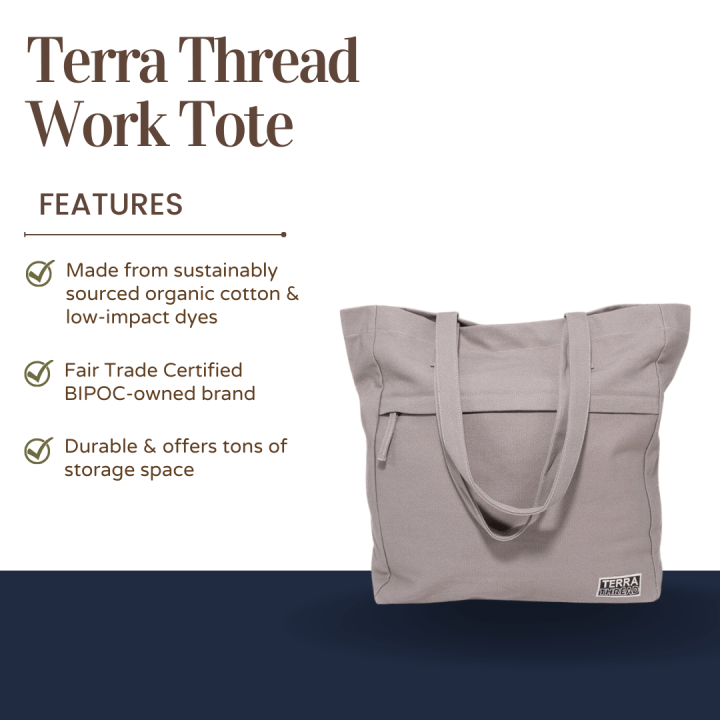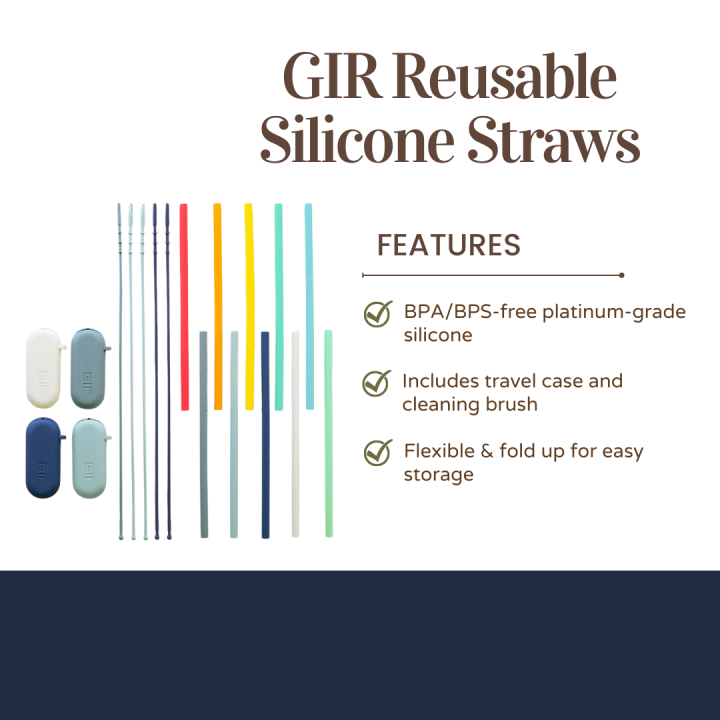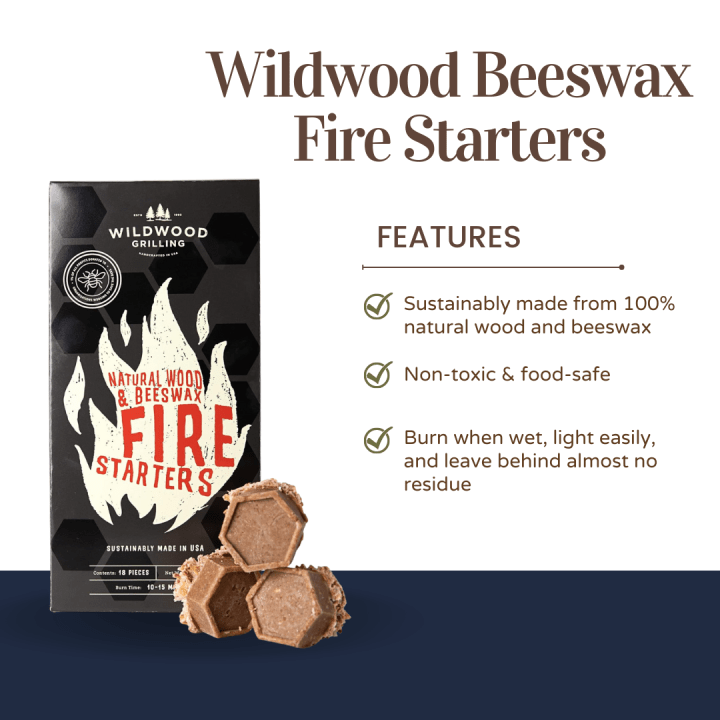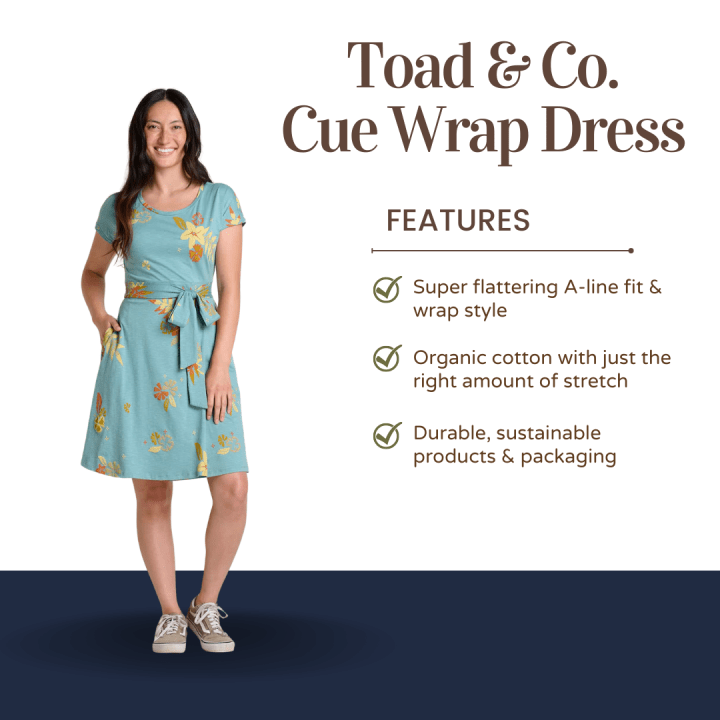Here Are Our 13 Favorite Eco-Friendly Travel Items To Celebrate Earth Day
Happy Earth Month! In honor of Mother Nature (and in preparation for Earth Day on April 22nd), we’ve hand-picked our favorite eco-friendly travel gear to share with you today. In addition to our travel expert-tested recommendations, we did some deep-dive research into the sustainability and environmental impact of the brands featured – and this wasn’t just a passing glance at mission statements. We learned more about product ingredients and certification standards than we expected, but it was worth it: we can stand behind our selections, knowing they meet high standards for both quality and eco-friendly practices.
Carefully curated by our team of local travel experts and nature lovers based on their personal experiences, these products help us embrace the great outdoors. For more incredible product recommendations in your inbox each week, sign up for our Hand-Picked email.
Earth-Friendly Travel Accessories
As travelers, we aim to respect and protect the destinations we love. Here are a few easy, eco-friendly products to pick up before your next adventure!
1. Terra Thread Executive Work Tote
2. S'well Reusable Water Bottle
Staff Pick: Sr. Content Operations Manager Catherine A. has this to say: "When picking a reusable water bottle, look for stainless steel, as they last longer and keep drinks cooler. I love my S'well bottles!
3. GIR Reusable Silicone Straws
Staff Pick: OnlyInYourState Contributor Emme A. has this to say: "GIR makes some of the best kitchen tools I've ever owned, so I was thrilled to find their silicone straws! These are a must-have."
4. Stasher Reusable Snack Bags
Staff Pick: Sr. Content Operations Manager Catherine A. has this to say: "Most people don't realize how many plastic bags they go through when packing lunches and saving leftovers, so having a durable reusable alternative is great."
Built For Earth-Loving Adventurers
From award-winning luggage to must-haves for outdoor adventurers, we found some awesome products that limit their environmental impact.
5. Wildwood Beeswax Fire Starters
6. Db Ramverk Luggage
Db is one of the most transparent brands we've seen, backs up all of its sustainability goals with science, and has landed at the top of nearly every best-of list out there. The bags aren't cheap, but it will likely be the last one you'll need to buy in a lifetime.
7. MPOWERD Solar String Lights
Staff Pick: Engagement Editor Meg A. has this to say: "My brother busted these out on a camping trip and I went and bought my own set as soon as we got back. You can adjust the brightness and one charge lasts for a long time!"
8. Patagonia Refugio Pack
Eco-Friendly Travel Clothes
We loved these items before we even knew how eco-friendly their makers were – and the fact that they care about the environment just makes them that much better!
9. Toad & Co. Cue Wrap Dress
10. prAna Fernie Beach Pant
Sustainability has been a core value for prAna since day one. Its products are Fair Trade & Fair Labor Certified, conscious of animal welfare & supply chain standards, and the brand has made continued progress on its climate action initiatives for decades.
11. Outerknown Blanket Shirt
Outerknown was founded by pro surfer Kelly Slater, so ocean-focused environmentalism was a priority since day one, but they've branched out to sow seeds of sustainability throughout every step of their production process ever since.
12. Cotopaxi Sombra Sun Hoodie
Eco-Friendly Bath & Body Products
From travel-size toiletries to single-use skincare products, the bath & body industry produces a significant amount of avoidable waste. These items help combat this.
13. Raw Elements Reef-Safe Sunscreen
So, tell us, do you own and love any of these products? Do you have any other eco-friendly travel favorites? We’d love to read about your picks in the comments! For more incredible product recommendations in your inbox each week, sign up for our Hand-Picked email.
Navigating Eco-Friendly Certifications
With so many different standards and certifications out there, knowing what to look for can be a challenge. We learned quite a bit of helpful information that we’re happy to share with you!
What is OKEO-TEX?
OKEO-TEX is a certification standard aimed at identifying products manufactured without chemicals or substances that are harmful to humans and the environment. There are six levels of OKEO-TEX certification, but the most common is Standard 100, which denotes a product is free from harmful levels of 100 toxic substances – not just for fabrics but for all materials, including thread, zippers, and buttons.
OKEO-TEX relies on independent third-party evaluations to ensure validity, and the certification criteria are reviewed annually to meet global standards. Additionally, the standards can be applied to both organic and non-organic materials, so even if you’re not shopping organic, this is a good certification to look for.
What does “GOTS Certified” mean?
You may not be as familiar with the Global Organic Textile Standard (GOTS), but if you’re looking for organic fabrics, this is an important one. GOTS has established a clearly defined, strict standard for organic textiles that is audited by independent inspections along every step of the production process. GOTS looks at more than just fiber content – it also has specific limitations for dyes and chemicals, as well as an emphasis on limiting excessive water and energy use.
There are two levels of GOTS certifications that you might see: a GOTS label grade of “made with organic” requires a minimum of 70% certified organic materials, while an “organic” label grade indicates a minimum of 95% certified organic materials.
What is Fair Trade certification?
Fair Trade certification is a standard that aims to ensure products are sourced in a way that is ethical and sustainable, particularly regarding materials and labor in developing countries. A Fair Trade Certified business has met specific criteria for its environmental, social, and economic impact. There are multiple fair trade organizations, but generally, this initiative is intended to ensure farmers and laborers are paid fairly, work in safe conditions, and use environmentally friendly methods.
While one of the more common eco-conscious indicators you may have seen, Fair Trade certification doesn’t come without criticism. In terms of labor, some Fair Trade wage standards apply only to farm owners and not their hired workers, and higher wages don’t always translate into better financial opportunities, as the cost to maintain Fair Trade standards can offset the gains.
Fair Trade certification has certainly helped many smaller-scale producers around the world, but if you’re concerned with its secondary impacts, consider looking for businesses with Direct Trade partners. Direct Trade is not a formal certification, but it does indicate that a merchant has an established relationship with a specific producer, which can foster additional opportunities for sustainable trade and environmental practices.
What is a B Corp?
“Certified B Corp” is a term you’ve likely run across… but what does it actually mean? A B Corp is a for-profit corporation that has been certified by B Lab, which conducts an in-depth assessment of the applicant’s business practices regarding environmental & climate impact, social & community sustainability, and business transparency. The standards are high, and certification is a lengthy process, so businesses that apply have put quite a bit of effort into ensuring they pass. As of April 2024, just over 8,500 companies worldwide are B Corp Certified.
That said, there have been legitimate questions regarding the B Corp certification process. B Lab is a non-profit, but part of its research relies on self-reported data, which has the potential to be misrepresented. B Lab certification is voluntary and doesn’t convey a specific legal status, as it’s a privately issued designation, which has led some to point out its limitations. B Lab standards are routinely updated, and businesses are re-evaluated every three years to maintain certification status, but the process isn’t perfect, and certification can be revoked at any time.
The takeaway? While we’d love to see a process like this backed by official regulatory agencies, this doesn’t undercut the rigorous standards B Corp businesses must meet and maintain, and B Corp status is still highly respected. The B Corp Certified businesses we researched for this article are genuinely committed to positive environmental & social practices and have the track record to prove it.
OnlyInYourState may earn compensation through affiliate links in this article. As an Amazon Associate, we earn from qualifying purchases.


















